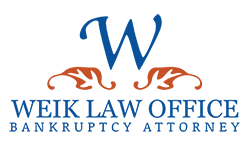GET HELP TODAY
Most Chapter 7’s that are filed are “no asset” cases. That means that the Debtor keeps all of the property that they own and “no assets” are required to be turned over to the bankruptcy court. Before a case is filed, the attorney will value your property and show you what you are allowed to keep or “exempt”. If you are filing with a spouse, the exemptions are doubled for each Debtor.
North Carolina uses state exemptions because its law does not allow the Debtor to choose the federal exemptions.
Below are some of the most commonly used exemptions in North Carolina:
Homestead Exemption
The homestead exemption protects up to $35,000 in equity of any real property that is used as the Debtor’s primary residence. The exemption rises to $60,000 if the Debtor is 65 or older, the property is held as tenants by the entirety or joint tenants with right of survivorship and the Debtor’s spouse has died (N.C. Gen. Stat §1C-160(a)(1)) When you come into the office for the free consultation, the attorney will value your real estate and discuss the equity analysis with you.
Motor Vehicle
You can exempt up to $3,500 in one motor vehicle. (N.C. Gen. Stat. § 1C-1601(a)(3)).
Other Personal Property
A total of $5,000 for clothing, household goods, furnishings, appliances, books, and the like, plus an additional $1,000 per dependent up to $4,000 total. (N.C. Gen. Stat. § 1C-1601(a)(4)).
Personal Injury Claims
Personal injury claims are exempt, or protected, but certain claims connected to the accident are not exempt. (N.C. Gen. Stat. § 1C-1601(a)(8)).
Qualified college savings
Accounts up to $25,000 are exempt. There is an exception for some amounts contributed within the last 12 months. (N.C. Gen. Stat. § 1C-1601(a)(10)).
Tools, professional books, and implements involved in a trade
Up to $2,000 in tools, professional books, and implements involved in a trade are exempt. (N.C. Gen. Stat. §1C-1601(a)(5)). This exemption does not apply if you purchased this property within 90 days of filing bankruptcy. (N.C. Gen. Stat. § 1C-1601(d)).
Retirement and Pension
Most retirement plans and pensions are exempt in North Carolina, and all tax exempt retirement accounts are fully protected under federal law including 401(k)s, 403(b)s, profit-sharing and money purchase plans, SEP and SIMPLE IRAs, and defined benefit plans. (11 U.S.C. § 522(a)(3)(C)).
IRA’s
IRAs and Roth IRAs have an unlimited exemption under state law, and the protection extends to inherited IRAs (inherited IRAs are not protected in most other states). (N.C. Gen. Stat. § 1C-1601(a)(9)).
Life Insurance
Life insurance for the benefit of the debtor's children or spouse is exempt. (N.C. Gen. Stat. § 1C-1601(a)(6)).
Wildcard Exemption
You can use any unused portion of the homestead or burial exemption, up to $5,000, to exempt any other property. This is generally referred to as a wildcard exemption. (N.C. Gen. Stat. § 1C-1601(a)(2)). This exemption does not apply if the debtor purchased the property within 90 days of filing bankruptcy. (N.C. Gen. Stat. § 1C-1601(d)).
